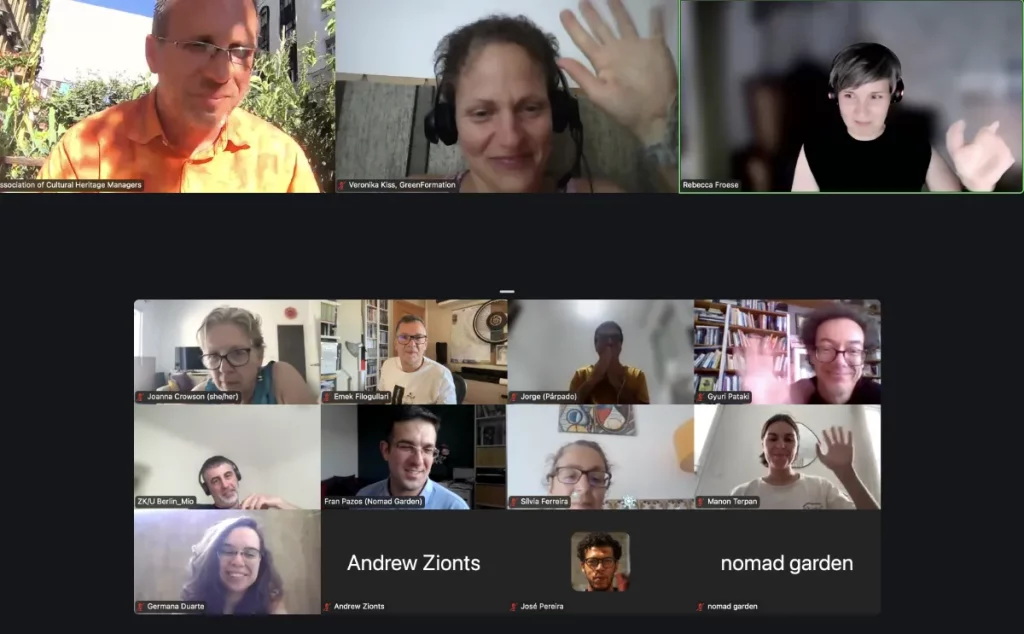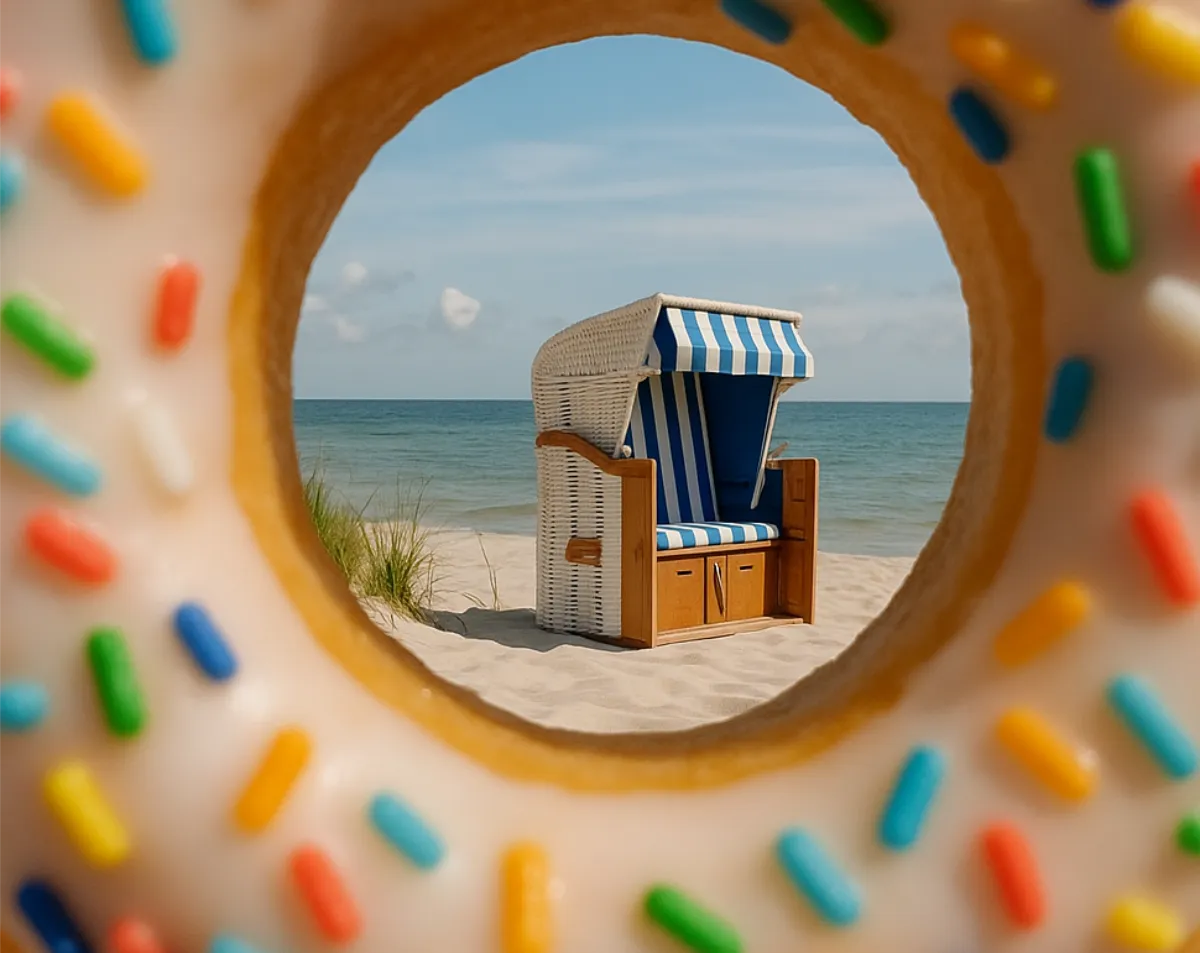As temperatures soared above 40ºC across Europe, the EMCCINNO team gathered online for a crucial meeting
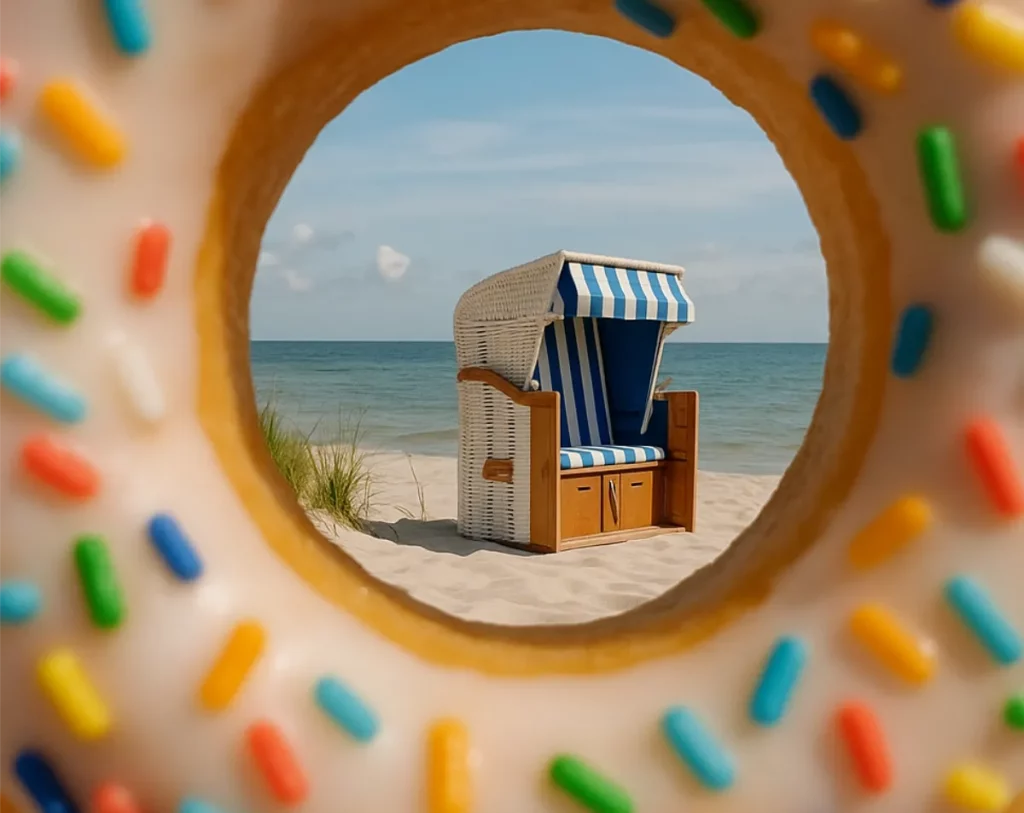
Kicking things off on a light-hearted note, Rebecca (RIFS) invited everyone to a virtual minute of cool air inside a traditional North Sea Strandkorb—a symbolic breath of relief amid the heatwave that’s gripping the continent.
With spirits lifted, the team turned to the serious business of shaping EMCCINNO’s assessment processes.
In the EMCCINNO project, the assessment processes are about understanding whether the ideas and actions being tested genuinely help cultural and artistic organisations contribute to tackling climate change. This means observing and analysing how the prototypes being developed in five countries actually work—not only in technical or economic terms, but also in how they affect people, culture, and the environment. Right from the start, EMCCINNO is building an analytical framework to evaluate these experiments in a systematic way, so that lessons can be learned and useful solutions shared with other organisations across Europe. In this way, EMCCINNO aims to ensure that good practices can be replicated and adapted in different places, helping the cultural sector play an active role in the climate transition.
Rebecca introduced two key frameworks. The first focuses on assessing local prototyping efforts in each pilot country. The second aims to capture the translocal development and learning processes that connect EMCCINNO’s diverse experiments across Europe.
A central tool in this discussion was the “CCI-Donut” model, inspired by the economic concept of the donut economy by author Kate Raworth. Pilots are encouraged to create their own individual “donuts” to define boundaries for human activity that stay within ecological and social limits. As Rebecca explained, the vision is to eventually integrate these individual donuts into a collective understanding that guides sustainable practices in Cultural and Creative Industries (CCIs).
“Without indicators, we can’t assess progress. We have to know where we want to go.”
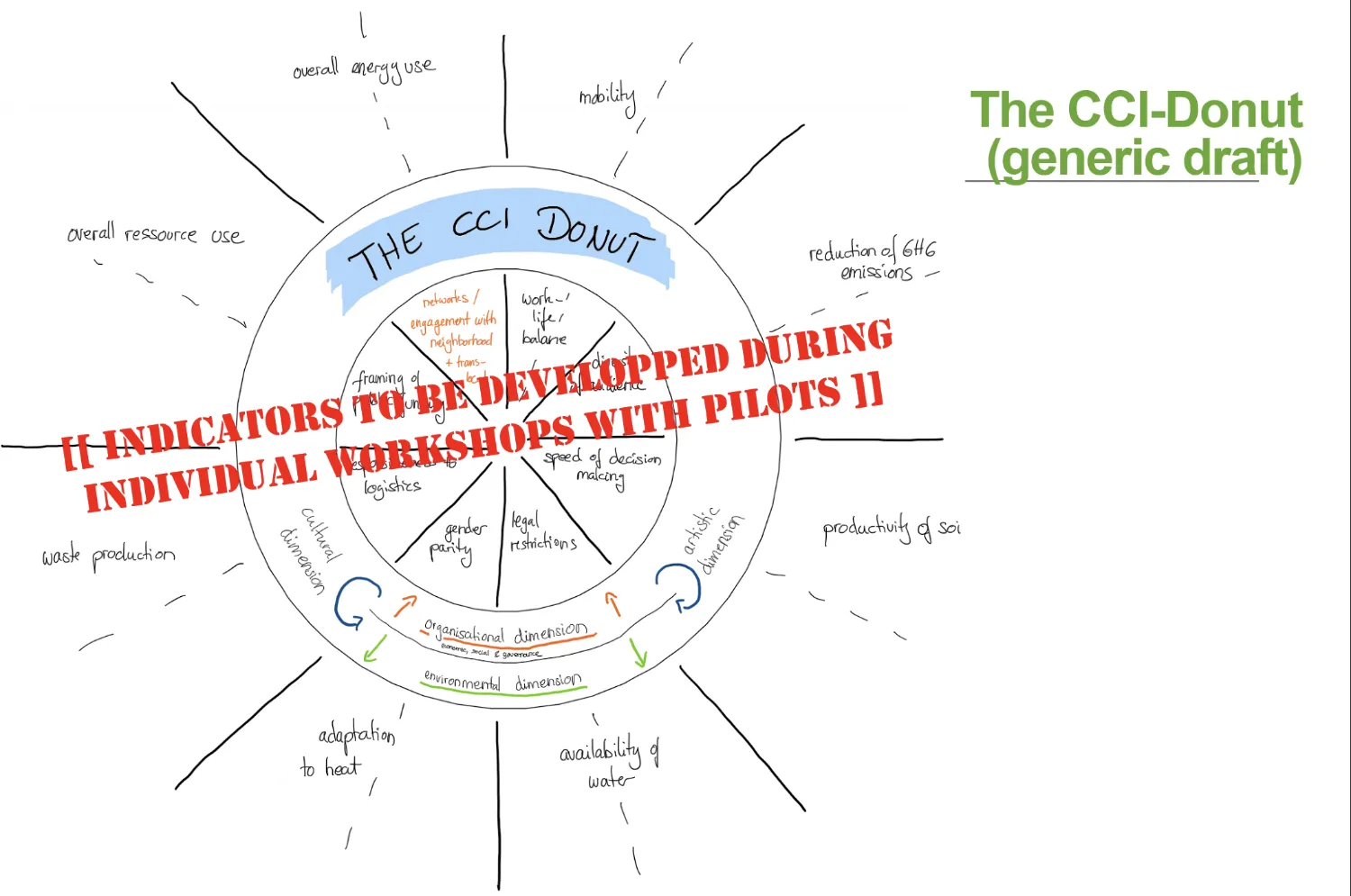
The conversation quickly turned lively and critical. Heloïse (CNRS) pointed out the challenge of defining boundaries and managing the complexity of so many dimensions. Rebecca acknowledged the model’s complexity but underscored that indicators and iterative refinement would help navigate it.
Joanna (BeTime) welcomed the complexity, emphasizing the value of acknowledging intricate realities instead of oversimplifying. “It’s about deciding which bits I can work on rather than trying to solve it all—I’m not the prime minister of a country,” she joked.
Manuel (RIFS) stressed the importance of defining clear indicators: “Without indicators, we can’t assess progress. We have to know where we want to go.” Jorge (BeTime), meanwhile, offered a poetic perspective, describing arts and culture as a “medicine” helping people endure difficult conversations about climate change, and noting that art often lies both inside and outside the boundaries suggested by the donut. Rebecca agreed, framing arts and culture as both a way to stay within the donut and to extend its limits.
Arpad (KÖME) shared enthusiasm for the donut’s attractive metaphor, while Mio (ZK/U) cautioned against falling into a “sugar trap,” warning that attractive models often fail if they’re not rooted in reality. He suggested breaking the donut rather than merely navigating inside or outside it—a question Rebecca said touches on issues of inequality and systemic fragility globally.
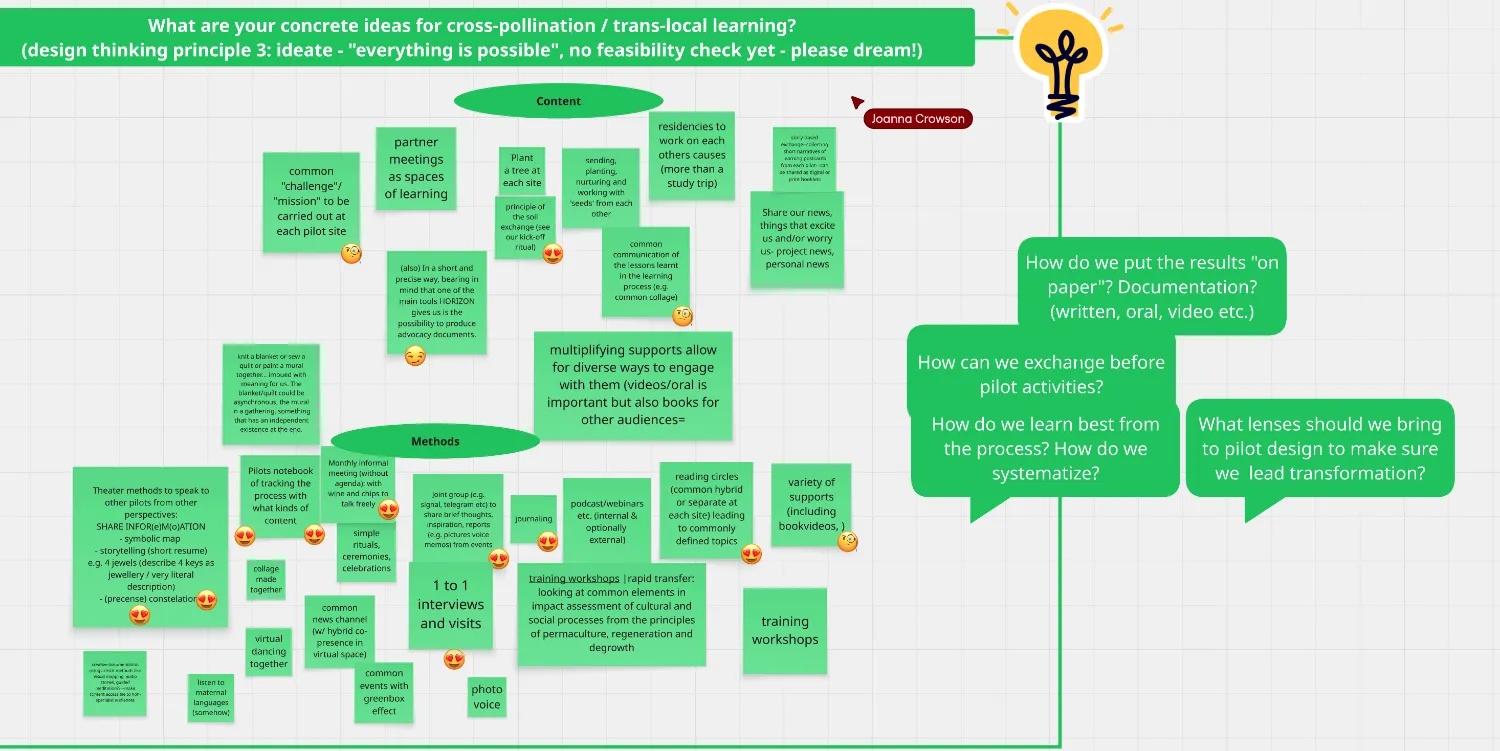
Discussion then shifted to the second framework, with a collaborative session on Miro. Partners brainstormed how to structure translocal learning and what each pilot expects from shared knowledge. Ideas ranged from refining priorities to identifying catalysts who could guide pilots through the learning process. As Rebecca noted, the goal is to translate proposals into practical steps with clear timeframes.
The meeting closed with a round of mood-sharing. Responses captured the mix of challenge and excitement ahead: “interesting,” “sticky,” “curious,” “expectant,” and even “pastel de Belén.” In the words of Andrew (BeTime): “Donut & coffee”—a fitting motto for the complex yet energizing road ahead for EMCCINNO.
